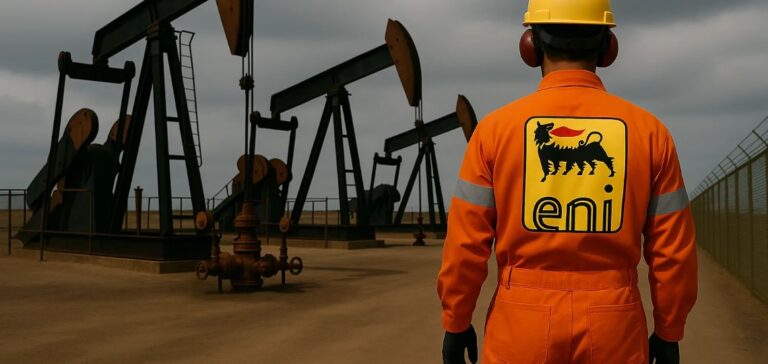Eni recorded a 3% decline in its net profit for the first quarter of 2025, amounting to 1.17 billion euros, amid weaker oil prices. However, this result met analysts’ expectations. The company’s revenue also fell by 2%, reaching 22.56 billion euros. Geopolitical tensions, particularly in the Middle East, and the decline in Brent crude prices weighed on the results.
Reduction in investments and anticipated savings
In light of these challenging conditions, Eni expects savings of over 2 billion euros in 2025. These savings are aimed at offsetting “macroeconomic headwinds” and the uncertainty associated with tariffs imposed by the Trump administration. The company has revised its net investment spending forecast for the year, now estimated to be under 6 billion euros, compared to an initial forecast of between 6.5 and 7 billion euros.
Impact of falling oil and gas prices
The average price of Brent crude fell by 9% to 75.66 dollars in the first quarter, directly impacting Eni’s profitability. Conversely, the price of natural gas rose sharply, increasing by 65% to 48 euros per megawatt-hour (MWh), partially offsetting the revenue drop from oil.
Production goals and dividends maintained
Despite the drop in results, Eni remains optimistic about its hydrocarbon production, which is expected to remain steady at 1.7 million barrels per day for 2025. The company also confirmed its commitment to shareholders, maintaining a dividend of 1.05 euros per share, a 5% increase, along with a share buyback program valued at 1.5 billion euros. These measures are made possible by a “very robust financial structure,” according to Claudio Descalzi, CEO of Eni.
Energy transition progresses
Eni continues to meet its energy transition goals. The company’s installed renewable energy capacity increased by 37% to 4.1 gigawatts in the first quarter of 2025, a sector in which Eni stands out from some of its European competitors, such as Shell and BP, who are slowing down their efforts to focus more on hydrocarbons.






















